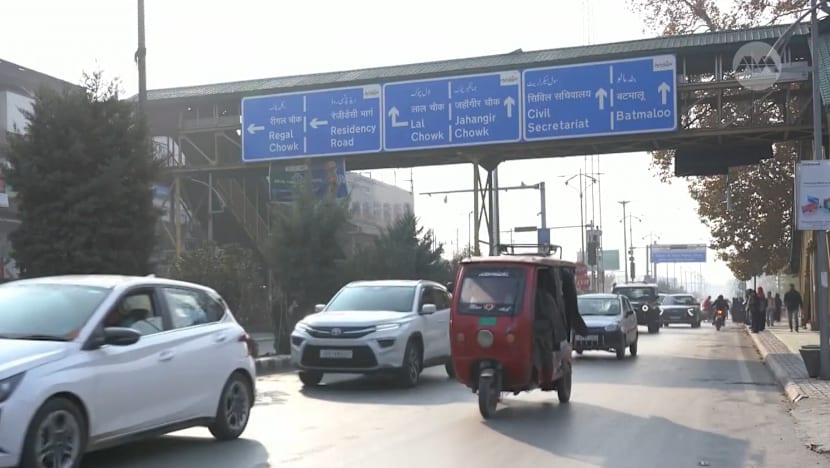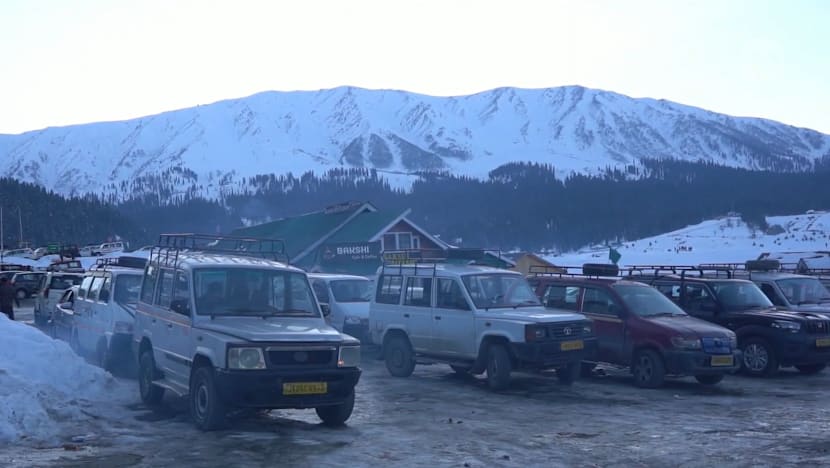EV dreams stall in Indian-administered Kashmir amid poor infrastructure, harsh winters
Electric vehicles make up only 4 per cent of vehicles in Jammu and Kashmir, with the majority being small rickshaws.

Cars and rickshaws on the road in Indian-administered Kashmir.

This audio is generated by an AI tool.
SRINIGAR: As India accelerates its transition to electric mobility, the picturesque but politically tense region of Indian-administered Kashmir is struggling to keep up.
Electric vehicles (EVs) are seen as the future of transportation in the world’s most populous nation, with a raft of federal schemes aimed at supporting their growth.
By 2030, the government hopes that 30 per cent of all new vehicle sales will be electric.
Its capital New Delhi, as well as several states including Gujarat and Goa, offer direct subsidies to buyers to drive the shift from petrol and diesel to electricity.
The results are beginning to show nationwide. Industry forecasts indicate the Indian EV market is projected to grow exponentially from US$3.21 billion in 2022 to US$113.99 billion by 2029.
EVs now make up around 8 per cent of India’s total vehicle fleet.
But in Jammu and Kashmir, that figure is less than 4 per cent, with the majority being small rickshaws.
“I believe people overthink when it comes to EVs compared to ICE (internal combustion engine) vehicles. They often become obsessed with factors like range and resale value,” said Ashfaq Nabi Bhat, general manager of car dealer Morris Garages Kashmir.
“Many are still not fully aware of the advantages of electric vehicles, and to be honest, EVs are much better than ICE vehicles.”
LAGGING INFRASTRUCTURE, HARSH WINTERS
Despite being eligible for federal incentives such as exemption from road tax, loans for EV entrepreneurs and support for charging infrastructure, Jammu and Kashmir remains on the periphery of India’s clean transport revolution.
The territory has just 153 public charging stations, among the fewest in India.
Srinagar, its capital and largest city, only has 10 such stations.
In a mountainous region like Kashmir, where terrain and weather already pose logistical challenges, the lack of an extensive charging network has made EV ownership impractical.
The problem worsens during the long winters, when frequent power cuts lead to charging delays and the sub-zero temperatures wreak havoc on lithium-ion batteries.

Winter temperatures can drop to as low as -8°C, cold enough to freeze batteries and reduce driving range by up to 20 per cent.
These conditions, experts say, discourage potential buyers who already have concerns about reliability and maintenance.
CALLS FOR LOCAL EV POLICY
Observers said many of these challenges could be mitigated with a comprehensive EV roadmap tailored to the region.
High fuel prices and worsening air quality make the need for a local EV policy more pressing than ever, they added.
However, lawmaker Mohammad Yousuf Tarigami, who is the former chairman of the Jammu and Kashmir Assembly’s environment committee, said he believes environmental issues are not a priority due to political uncertainty in the region.
Kashmir is disputed between India, Pakistan and China, each administering parts of the region.
On having a local EV policy, Tarigami added: “We will, along with other concerned citizens, try to do it, and make it happen and persuade the authorities … that they must evolve a comprehensive policy which is applicable (and) results-oriented.”
Analysts say that with a clear policy framework and targeted investment, Kashmir could become one of India’s most sustainable clean-mobility hubs.
But for now, it risks being left behind in the country’s electric revolution.















